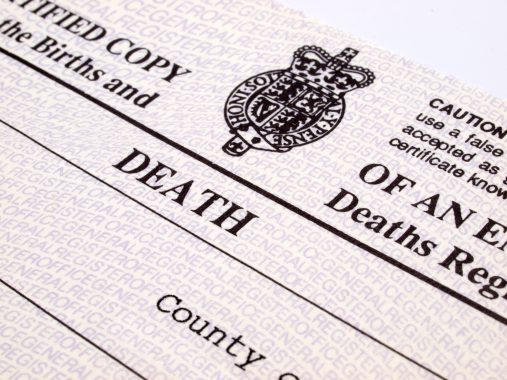The new medical examiner system will be ‘administratively burdensome’ for GP practices, the BMA has warned.
Beginning in April, the new system will require GPs in England and Wales to engage with local medical examiners for all non-coronial deaths and therefore implement processes to share patient records.
England’s GP Committee also expressed concerns that some medical examiners may not have capacity to provide scrutiny of community deaths within ‘reasonable timescales’, particularly for certain faith groups with specific ‘expectations’.
Draft regulations for the new system were published in December and are expected to be laid before Parliament in ‘early 2024’.
The Government failed to meet its original deadline for bringing in this legislation, but many regions are already using the system.
It will mean GPs, as an attending practitioner, are legally required to agree death certificates with the medical examiner at a local hospital trust.
In a recent update to BMA members, the GPCE said it has written to the national medical examiner outlining concerns with the new system, based on feedback from GPs.
The committee criticised the lack of consistency in the implementation of medical examiners (MEs).
‘Regrettably there is no consistency within the England-wide rollout; instead, ME units have been asked to form geographically appropriate links with local GP practices; this then means each practice should know where the deceased’s details, including medical records and the proposed MCCD (medical certificate of cause of death), should be sent,’ the updated said.
Other GPCE concerns:
- The provision of information to ME Units from practices may be administratively burdensome;
- In some cases ME units may not have sufficient capacity to undertake the scrutiny of community deaths within reasonable timescales and be unable to adapt these timescales to faith groups with particular expectations;
- ME units may not appreciate the level of patient concerns and distress about delays in this process, as these concerns are currently being directed to practices.
Last year, the BMA highlighted that the GP contract for 2023/24 does not stipulate that GPs must agree death certificates with a medical examiner, and Pulse reported that the ME system was included in the union’s list of ‘bureaucratic items’ that should be completed elsewhere to reduce GP workload.
However, from April and pending the necessary legislation being laid in Parliament, GPs will have a statutory responsibility to comply with the new system.
Pulse October survey
Take our July 2025 survey to potentially win £1.000 worth of tokens

















Yep whenever they promised reduced bureaucracy they got rid of passport signing (quick easy and profitable) and then introduce stuff like this.
we will have more pointless admin to do and lose the cremation fee, an important source of NHS income
MORE WORK and LESS MONEY- just what general practice needs- give yourselves a pat on the back for this utter shambles DOH!
Of course, it is an administrative burden. It was never going to be anything less. We really need to act collectively behind the GPC and strike.
More work without extra resources imposed without sufficient consultation.
Why do we lay down and put up with this shit?
All the countless broken parts of The System that need urgent attention, and they choose to mess with this?!
If we are no longer trusted to complete death certificates/crem papers for our patients and the funding is being removed, then ALL the responsibility and ALL the workload should pass to the examiners.